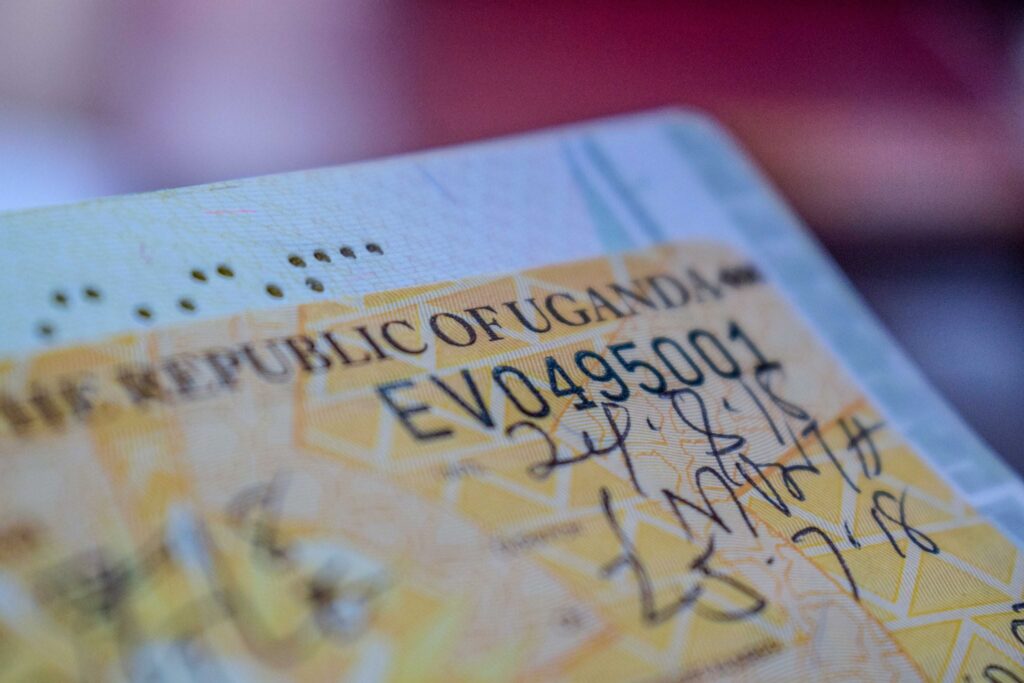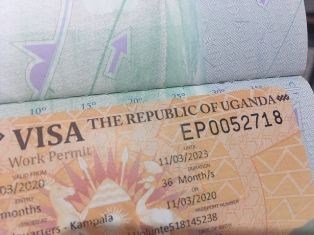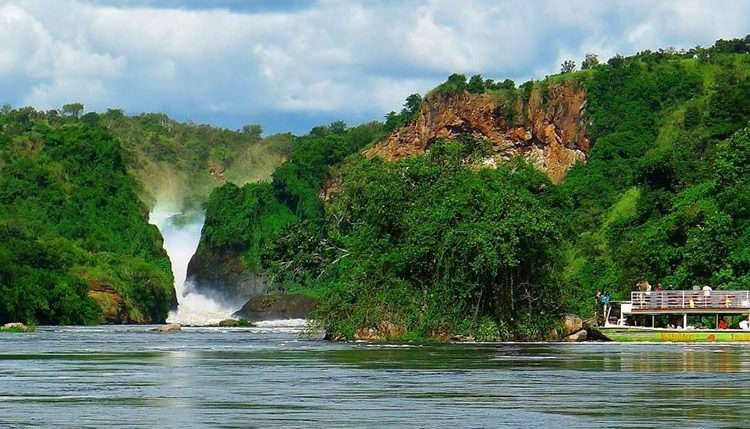Looking to work in Uganda? Application for work permits are processed by the Department of Immigration, Ministry of Internal Affairs, Kampala. However, relevant consulates and embassies can initiate the procedure. To commence the process, full payments for the entire duration of work permit must be paid up-front. A deposit equivalent to the cost of return airfare to the home country is required of foreign employees depending on the class of the work permit and must be paid to the Ministry of Internal Affairs official bank account.
This deposit is refunded without interest, upon investor’s/expatriate’s departure from Uganda. For instance, a Class G permit costs US$75- per annum and so, an expatriate given 3 years will be required to pay US$225 up-front plus a security bond equivalent to the cost of a return airfare to the country of origin.

Who needs a Work Visa/Permit?
A work Visa/permit is required of any foreign national who plans to travel to Uganda for work purposes. This requirement applies to paid employment as well as volunteer work. Foreign workers should carefully choose the right type of work permit before beginning the application process. If you’re unsure of which category is the most appropriate for your employees, contact the Ministry of Internal Affairs and they will guide you through the specifics of each type of work permit. Once the visa or permit is approved, the applicant can travel to Uganda and begin working.
| TYPE | DESCRIPTION | AMOUNT IN US $ | |
| Passes | Class A | Persons engaged in Govt. service, embassies, UN agencies COMESA | NIL |
| Class A2 | Persons working for partly-government owned corporations | 50 | |
| Class B | Persons engaged in agriculture or animal husbandry | 175 | |
| Class C | Persons engaged in agriculture or mining Industry | 250 | |
| Class D | Persons engaged in trade investment | 250 | |
| Class E | Persons engaged in manufacturing business | 250 | |
| Class F | Professionals | 175 | |
| Class G | Persons offered and accepted employment (expatriates) | 75 | |
| Dependants pass other than wife or child | 500 | ||
| Dependants pass wife | 250 | ||
| Dependants child | 250 | ||
| Pupils pass | NIL | ||
| Visitors pass | NIL | ||
| In-transit pass | 10 | ||
| Special pass | 50 | ||
| Extension pass | 20 | ||
| Citizenship | Citizenship for married women | 100 | |
| Citizenship for others | 1,000 | ||
| Appeal Fees | Appeal fees | 500 | |
Application Process
You are required to apply for your work permit prior to the planned departure date. Most applicants begin the process by getting in touch with the nearest Ugandan embassy or consulate for an up-to-date list of the requirements for the specific visa or permit needed or even any other additional information.
After confirming the up to date requirements, applicants should gather all necessary materials and complete the application form(s) for the appropriate work permit with all necessary attachments. Upon completing the application, the employee will then submit it to the officials at the Ugandan embassy for approval. Once the visa or permit is approved, the applicant can organize and travel to Uganda to begin work. The entire process takes about one month.
Requirements
The requirements for a Ugandan work permit can vary based on which category your employees fall under. However, these are some of the basic requirements needed:
A valid passport
A duly completed application form
Two passport photographs
A cover letter
A letter of appointment from the employing company based in Uganda
A police background check from the applicant’s country of residence
Copies of any certificates demonstrating the applicant’s qualifications for the job

Other Important Considerations
Foreign employees who plan to travel to Uganda with a work permit can bring family members along, but they’ll need to provide additional documents with their application if they choose to do so. Additional requirements may include marriage or birth certificates for accompanying family members to prove legitimacy.
Foreign employees should also be aware that Ugandan work permits are employer-specific. Should the employee change jobs in Uganda, they’ll need to apply for a new work permit.
East African Citizens
The East African community (EAC) is a regional intergovernmental organization that unites 6 East African countries. Just to say, it like the European Union. The EAC Common Market Protocol allows workers from any Partner State to accept employment within any other EAC country. They cannot be discriminated against on the basis of their nationality. Furthermore, a worker will have the right to social security benefits and can be accompanied by a spouse and children. It is however worth noting that, Employment in the public service is excluded unless permitted by the particular Partner State.
A worker who has a contract of employment of a period of more than 90 days in the territory of another Partner State shall apply to the competent authority for a work permit within 15 working days from the date of entry into the territory of the host Partner State. Where a worker secures employment for a period of not more than 90 days, the worker shall apply for, and be issued with a special pass.
Where the competent authority rejects an application for a work permit, the competent authority shall in writing, notify the applicant, stating the reasons for the rejection. Important to note is that the Republics of Kenya and Rwanda have abolished work permit fees for East African nationals working in the two countries regardless of the work duration.
EAC citizens have the right to establish their business in any Partner State and pursue economic activities in accordance with the national laws of the Partner State. Self-employed persons are able to carry out their work across the region, and be entitled to social security schemes in the host country. The Protocol requires Partner States to remove all restrictions on the right of establishment based on the nationality of the companies, firms and self-employed persons.
About Memoir Uganda – Showcasing Uganda
We are a comprehensive tourism and travel media company unleashing information about Uganda. We offer, among others, an all-inclusive guide on everything Uganda such as itineraries, consular information, timely and updated tour and travel news and general information about visiting and living in Uganda.
To us, Uganda is more than a tour destination. It is our homeland. Our knowledge about Uganda is ocean deep and we love showing the country’s splendid beauty to the world. We aim at sharing and showcasing Uganda to the tiniest bit, better than anyone else.
Our Memoir Uganda magazine showcases Uganda’s diverse potential in detail that is often left out and unknown. You ought never to miss a copy. We robustly believe that traveling should make the world a better place for everyone.





